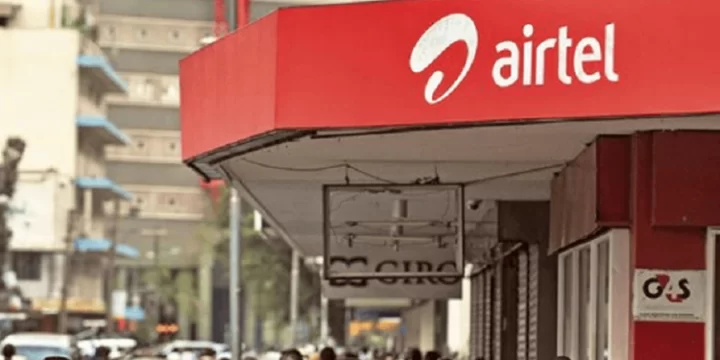Airtel Nigeria has announced a substantial increase in its infrastructure investment, allocating approximately $39 million toward network expansion, digital service upgrades, and technology enhancements for the remainder of 2025. The focused capital deployment underscores the telecommunications giant’s commitment to improving service quality, coverage, and resilience amid rising demand for data-driven connectivity.
At a media briefing in Lagos, Airtel’s Managing Director confirmed that the increased spending—nearly 20 percent above its initial 2025 capital plan—is being channelled into several core areas. These include expansion of 4G coverage, accelerated rollout of new 5G base stations, deployment of fiber-optic transmission links, and investment in power-backup infrastructure to address persistent electricity shortages.

“A robust digital infrastructure is non-negotiable in today’s economy,” said the MD. “This $39 million investment will allow us to reduce dropped calls, improve data speeds, support remote-working needs, and deliver more stable service in underserved areas.”
A significant portion of the funds is earmarked for expanding mobile broadband services to rural and peri-urban zones. Airtel plans to build or upgrade over 500 base transceiver stations (BTS) in states across the North West and North East—regions that have historically experienced poor connectivity and limited digital access.
Furthermore, the upgrade underpins Airtel’s 5G initiative, which has begun in pilot towns such as Lagos’ cosmopolitan areas and Abuja’s business districts. Funding will support both additional 5G sites and the necessary fiber and power infrastructure required to sustain ultra-fast network performance.
High on the agenda is power reliability—a known challenge in Nigeria’s telecom environment. Airtel intends to deploy advanced solar hybrid power systems and backup energy solutions at over 400 critical sites to cut downtime and reduce diesel dependency. This not only improves service availability but aligns with the company’s sustainability ambitions.
Airtel also intends to scale its fiber network to support both 5G backhaul and expansion of enterprise services, including fixed broadband and managed services for businesses. Fiber deployment plans cover commercial centers in Lagos, Port Harcourt, Ibadan, Kano, and other emerging city hubs.
The investment climate remains challenging. With inflation nearing 30 percent and foreign exchange instability ongoing, the planned capital outlay reflects Airtel’s confidence in its long-term strategic trajectory. Executives indicated that while hardware and energy costs are rising, securing forward purchase agreements and tapping internal cashflow are helping preserve the investment plan.
Analysts viewed the announcement positively. “Airtel’s significant infrastructure investment is a signal of competitive intent and growth confidence in Nigeria’s telecom sector,” said an industry reviewer. “By addressing power and data challenges head on, Airtel is positioning to differentiate its service offer.”
Service metrics already suggest early improvements: areas upgraded in Q1 have seen reductions in congestion and increased customer satisfaction scores. More stable data speeds and fewer network outages are being reported across causal user surveys.
To finance the initiative, Airtel said it would rely primarily on internally generated cash and selective low-cost debt. The company has also applied for sector-specific incentives, claiming eligibility for customs exemptions and special licensing provisions tied to infrastructure rollouts. Local and regional partners are being engaged for logistics and sourcing, with some sourcing components expected to be manufactured domestically.
Despite the investment surge, Airtel faces stiff competition. Key competitors are also enhancing 4G/5G footprints and exploring partnerships to improve efficiency and network quality. Market watchers caution that unless Airtel maintains affordability in tariffs and expands value-added services, growth may be constrained by price-sensitive consumers.
Looking ahead, Airtel intends to leverage the infrastructure investment to support financial inclusion services, e‑commerce connectivity, and digital education platforms. Collaboration with government initiatives—such as digital ID and online public services—is also on the horizon. By aligning stronger network coverage with public sector digitalisation programs, Airtel aims for deeper systemic integration.
The company also affirmed that customer experience continues to be a priority: improved network KPIs, faster call restoration, more reliable data services, and automated support channels are being rolled out through its operations centers. Airtel says its customer care performance and digital support tools are being synchronised with infrastructure improvements to ensure consistent service delivery.
In conclusion, Airtel Nigeria’s $39 million infrastructure investment sets an ambitious pace for technological and service transformation in 2025. By reinforcing network footprint through strategic expansion, power reliability, and fiber deployment, the company is signaling intent to lead in digital performance and rural connectivity. Whether this capex direction translates to sustained market share growth will depend on execution, customer responsiveness, and competitive agility in an evolving telecom landscape.
Support InfoStride News' Credible Journalism: Only credible journalism can guarantee a fair, accountable and transparent society, including democracy and government. It involves a lot of efforts and money. We need your support. Click here to Donate
